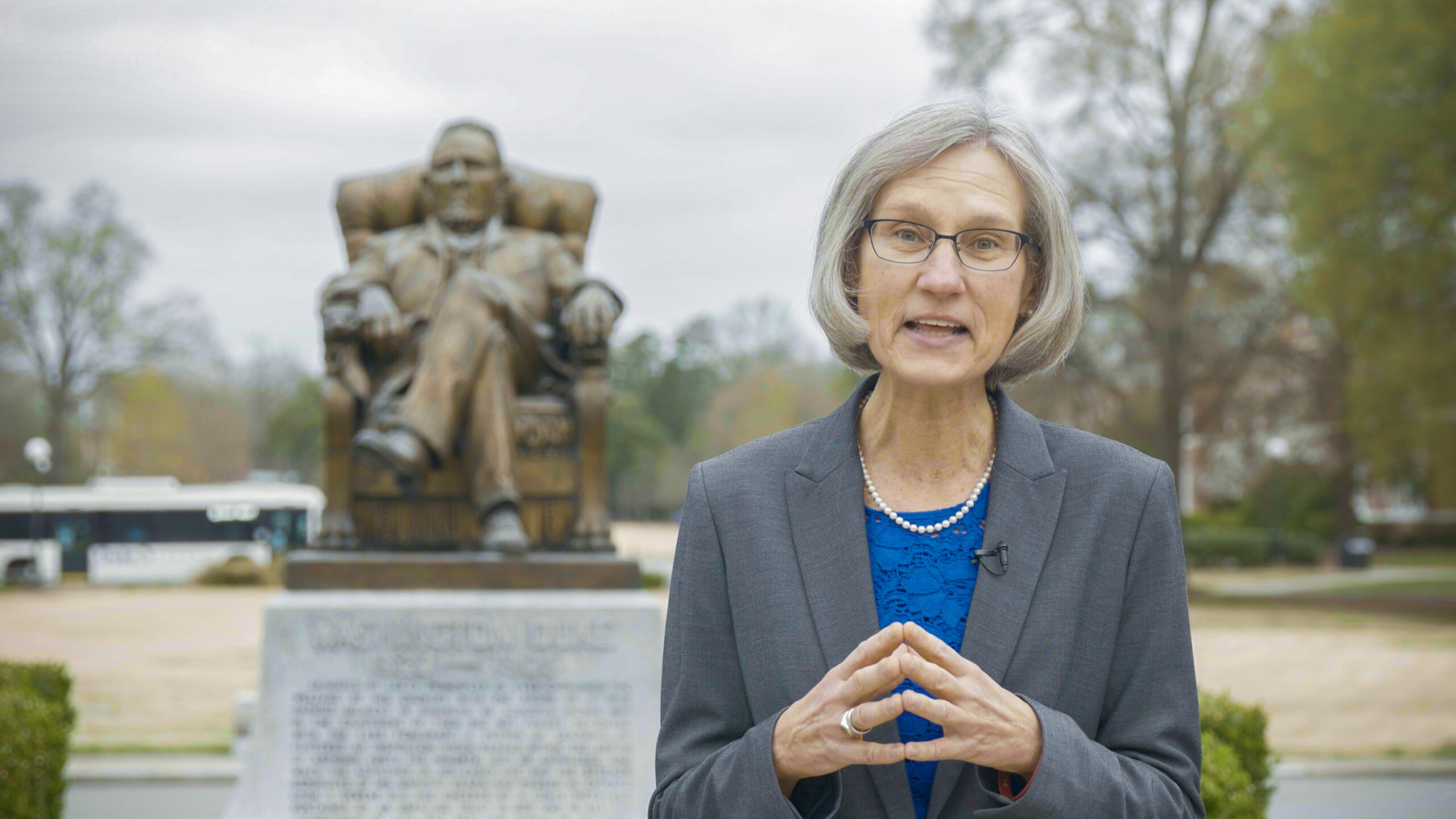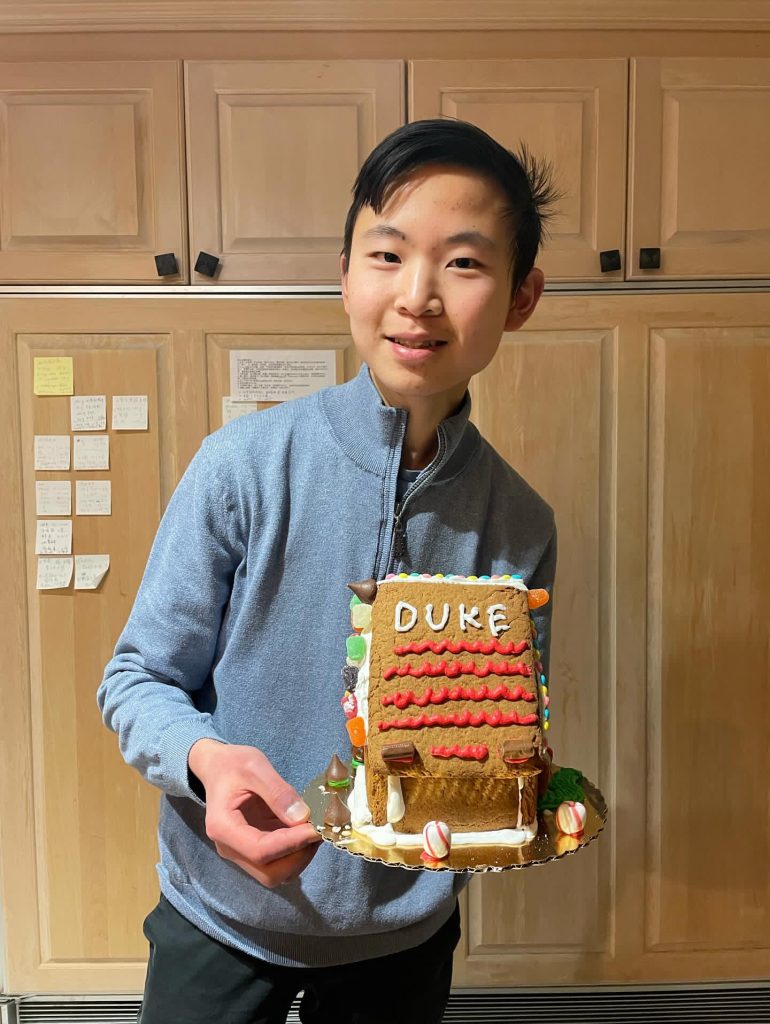
Half a century at Duke University. And many more years to come.
For more than 40 cohorts of Duke students, Sue Wasiolek has served as their Dean of Students, affectionately known to all as Dean Sue. Today, she is back in the classroom as an adjunct professor in the program of education, teaching several classes this semester on free speech, civil discourse, and education law.
For many in the Class of 2028, Dean Sue may be an unfamiliar figure. Having gotten to chat with her several times since August, first meeting at a Project Citizen dinner during orientation week, I cannot help but share Dean Sue’s insights and advice with my fellow freshmen and students at large. So, just like many of my peers, I FLUNCHed with Dean Sue on Monday and invited her to share her perspective on undergraduate education and how students can best formulate their journey in a rapidly changing world.
To begin our interview, I asked Dean Sue to introduce herself to new students and briefly describe her relationship with the student body. Besides stating her formal role and faculty appointment, Dean Sue emphasized that her previous tenure as Dean still heavily influences her perspective as a professor. “I would have a very hard time overlooking the fact that I had been a Dean of Students here for over 40 years,” she said. “I do think about the student experience through this lens of student life and community building and wellbeing, and that is not the way most faculty think.” Just from listening to that brief introduction, I was again astounded by the deep-rooted, unchangeable connection Dean Sue has with Duke students, particularly first-year students.
Next, I invited Dean Sue to explain the motivation and creation process behind her work, “Getting the Best Out of College.” Funny enough, I did misread the title when I posed the question, labelling it as “Getting the Most Out of College.” This small slip-up led to a lengthy exploration of the book’s title and mission, and unbeknownst to me before the interview, the word choice of “best” versus “most” was precisely the object of contention between the co-authors, which also included Professor Peter Feaver and alumna Anne Crossman. “In order to sell this book, [Dr. Feaver] felt like we needed to appeal to students and their parents,” said Dean Sue. And perhaps because of the final decision of “best” and orienting the book towards a noble end, the book suffered in sales performance. “I still get royalty checks from the publisher, and I got maybe $13 last year? And that’s likely an exaggeration,” she said.
Discussing the work’s inspiration, Dean Sue said that Professor Feaver believed that the combination of student, faculty, and administrator perspectives featured in the book made it a rich, insightful read. “We cannot find another book like it… everything was admissions-based,” she explained. And despite not receiving an Oprah’s Book List nomination or other accolades for the first two editions, Dean Sue is convinced of the book’s literary value and pursuing a third edition. “The last edition came out in 2012, and the smartphone came out in 2008”, she stated, discussing the need to include pertinent content like transferring and technology in a new edition.
Perhaps the most insightful exchange I had with Dean Sue over delectable food from JB’s was when I posed the question, “What is your message to students from underserved backgrounds intent to go down a certain academic path in regard to their willingness to fully explore at Duke?” To my surprise, Dean Sue replied that her advice for such students is not any different from wealthy students. “What today may appear to bring you great financial stability may not do so 10 or 15 years from now,” she said, encouraging students to know their values and “why” that they are studying what they study. “This takes great courage, but fully explore and get off the treadmill, [which is] what you think you want to do as a career,” Dean Sue advised. Her message of taking advantage of Duke’s amazing faculty and curriculum is one I am sure all of us could take to heart.
Before I close, I must relay the centerpiece of Dean Sue’s recommendation: do not declare anything beyond your required major! “Anything beyond that limits what you can take,” she said. And this includes anything from a second major to a minor or certificate. Why not opt to explore Art History instead of taking your fifth Economics minor class when you can write “extensive coursework in economics” on your resume anyway? That is a question that many Economics students must ponder about.
I would be writing forever if I wanted to capture all the wonderful details from my conversation with Dean Sue. Her wisdom, compassion, empathy, and boundless support continues to impress all who know her, including myself. To all who have yet to interacted with her, I strongly encourage you to go out of your way to embrace her friendly smile, which you can spot around both East and West Campus.
So go and explore.

